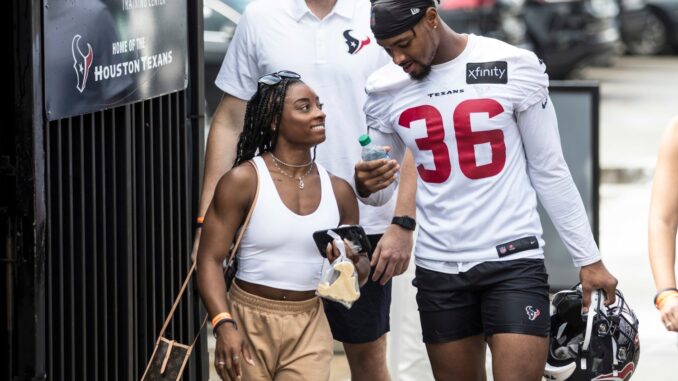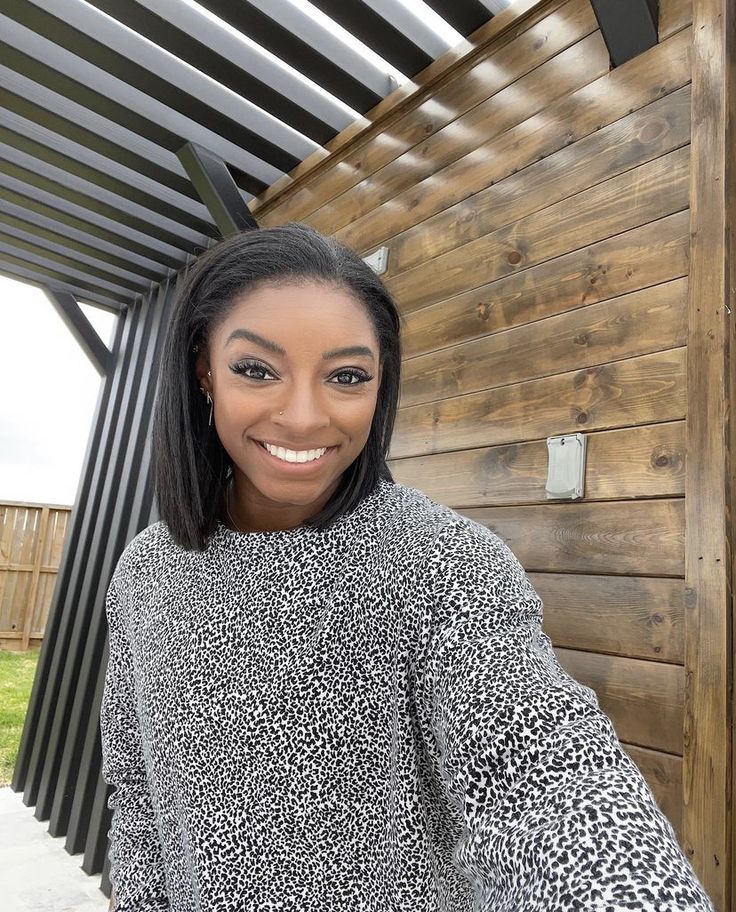
Let’s be real—being an athlete is hard enough. But being a female athlete in the public eye? That’s a whole new level of pressure. Between social media scrutiny, body expectations, and performance demands, the spotlight can sometimes burn more than it shines. Two powerful voices, Olivia Dunne and Simone Biles, have recently opened up about the emotional toll of body image issues. What’s more inspiring is how they’ve used their platforms to empower others who are silently struggling too.
In the age of social media, athletes like Olivia Dunne have experienced the weight of fame in a way that’s unique to this generation. Once her follower count surpassed millions, she quickly became more than just a college gymnast-she was thrust into the public eye. While the perks of fame are obvious, the pressure that comes with it is often overwhelming. As Dunne candidly confessed, this surge in attention, triggered by the NCAA’s Name, Image, and Likeness (NIL) policy, forced her to confront the battle between appearance and performance. In her vulnerability, she admitted, “I just didn’t know what to do. And it was really hard with body image for a while.”
The struggles of balancing fitness with public expectations
For Dunne, the shift from athlete to influencer wasn’t seamless. Her role as a gymnast, focused on rigorous training and elite performance, collided with the unrealistic beauty standards seen on social media. She found herself caught in an impossible dilemma-should she fuel her body like a gymnast or fit the mold of a social media model?
This led her to struggle with her own self-confidence, turning to Photoshop as a crutch. “I truly was not confident in myself,” she shared. Filters became a way to cope with the pressure, not out of vanity, but because of the overwhelming desire to meet expectations that felt unattainable.
However, over time, Dunne learned to navigate this new reality. During a shoot with Sports Illustrated, she found herself surrounded by women who embraced their bodies unapologetically. This experience became a turning point, helping her rediscover her strength. “It was a timely process to learn to love those muscles,” she revealed. It wasn’t an overnight transformation but rather a gradual journey toward self-acceptance.
While Dunne’s newfound confidence was an important personal milestone, she also credits her LSU head coach, Jay Clark, for keeping her grounded. Despite the distractions of social media, Clark helped her stay focused on the sport she loved, reminding her to prioritize the process over the noise.
This guidance was crucial in helping her secure an NCAA title, proving that true success comes from within. Olivia Dunne’s story has now become a beacon for young athletes grappling with similar issues. She encourages others to understand that body image doesn’t change overnight, but with the right support and mindset, it can evolve. Simone Biles, a gymnastics legend and Olympic gold medalist, has also opened up about her body image struggles, drawing striking parallels to Dunne’s journey. As a young gymnast, Biles faced harsh criticism for her muscular frame, even being called a “swoldier.”
She often hid her arms under sweaters to avoid judgment. But with time and support from her teammates, Biles gradually embraced her body’s strength and function. In a powerful reflection, Biles shared, “Now, I show off my arm all the time,” signaling her confidence in her body’s abilities. She now advocates for a healthy body image that goes beyond appearance. “Healthy body image is when you feel confident with yourself-inside and out,” she explained. Both Dunne and Biles have emerged as powerful role models for athletes, teaching that self-acceptance is a practice, not a performance. Their journeys prove that embracing one’s body requires time, patience, and authenticity.

Olivia Dunne and Simone Biles are doing more than flipping on beams or flying through the air—they’re flipping the script on what it means to be a female athlete. Their stories are raw, real, and necessary. Because somewhere out there, a young girl is watching and thinking, “If they can love themselves through this, maybe I can too.”